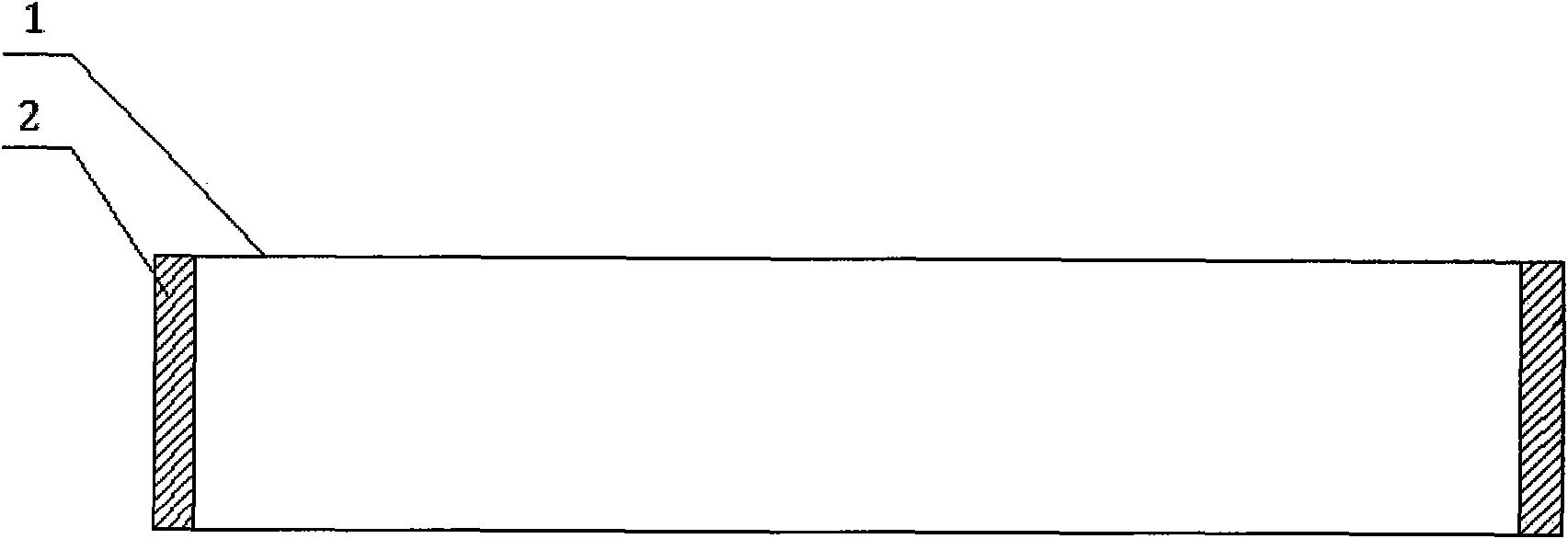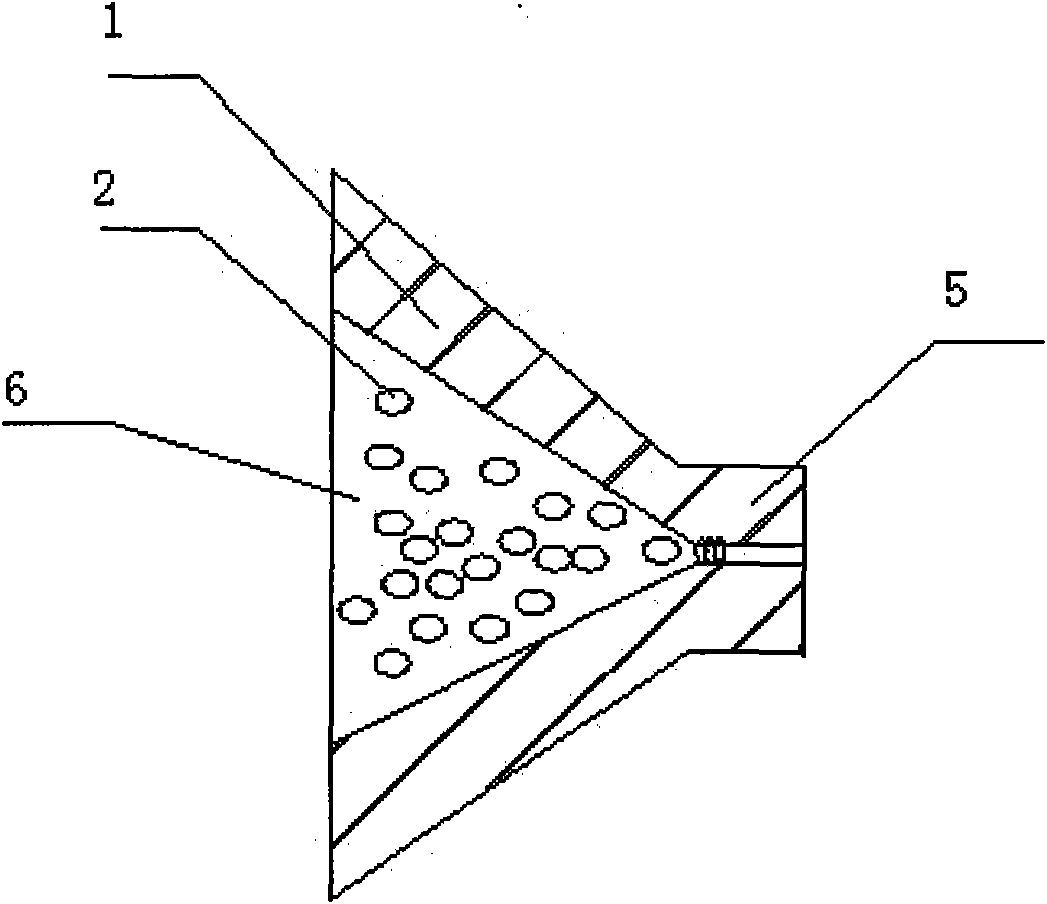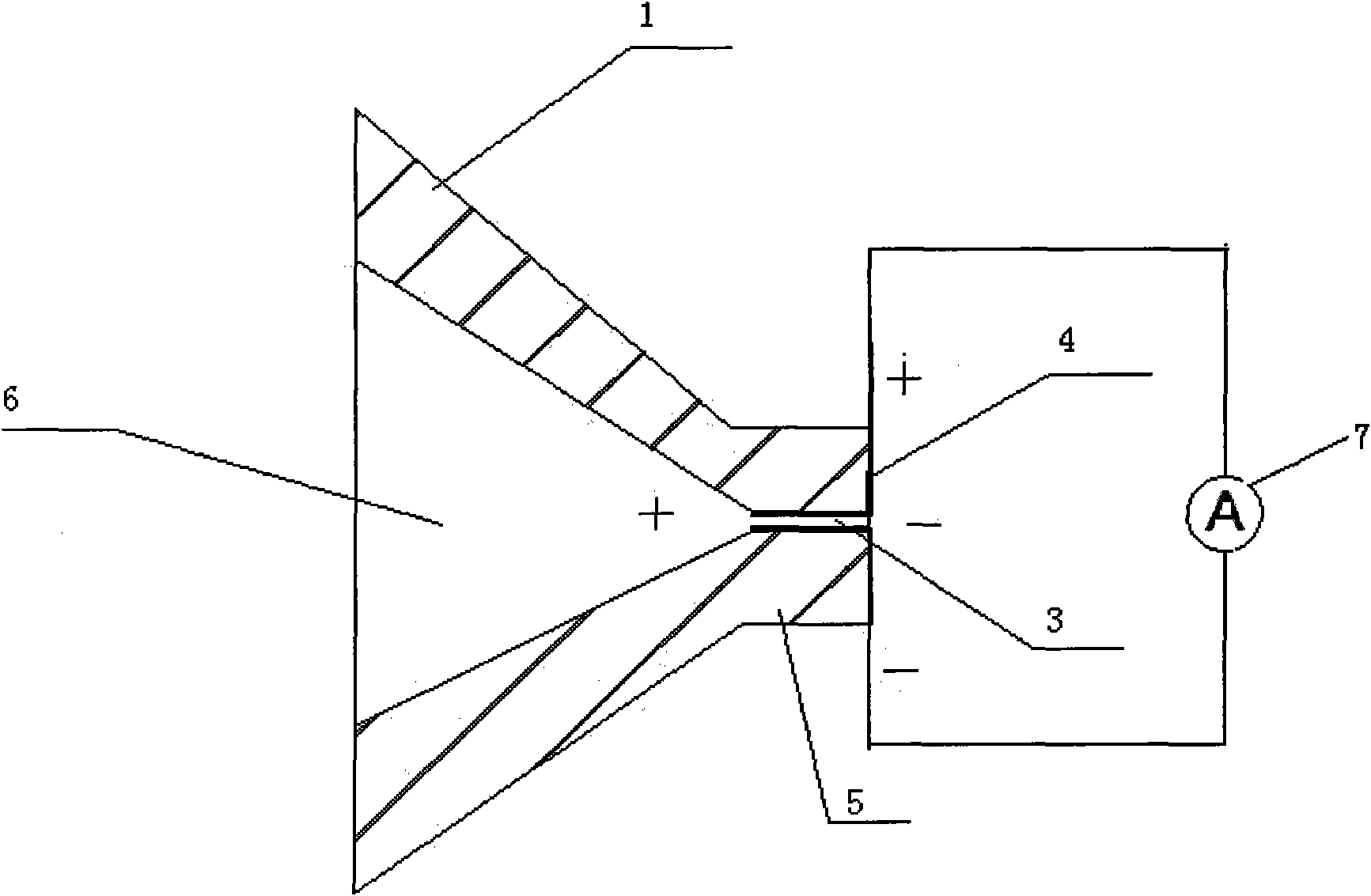Glass-micropipe-based single nanopore sensor and manufacturing method thereof
A technology of nanopore sensor and glass microtube, which is applied in nanotechnology, nanotechnology, nanotechnology and other directions for sensing, can solve the problems of inability to judge the motion state of the measured medium and limit the resolution, and achieve simple, The effect of high sensitivity and high structural strength
- Summary
- Abstract
- Description
- Claims
- Application Information
AI Technical Summary
Problems solved by technology
Method used
Image
Examples
Embodiment Construction
[0018] In order to make the technical means, creative features, goals and effects achieved by the present invention easy to understand, the present invention will be further described below in conjunction with specific embodiments.
[0019] The single nanohole sensor of the present invention comprises a glass microtube 1, the glass microtube 1 includes a protrusion 5 positioned at the right end, a single nanohole 3 is arranged in the protrusion 5, and a fluid chamber is respectively arranged at both ends of the single nanohole 3, The two fluid chambers are connected through the single nanopore 3, and the voltage between the two fluid chambers is provided by the first voltage source. Two Pt electrodes 4 are arranged on the upper and lower sides of the single nanopore 3 on the protrusion 5, and are detected by an ammeter 7. For the current between the two Pt electrodes 4, the two ends of the ammeter 7 are respectively connected to the two Pt electrodes 4, and the voltage between ...
PUM
| Property | Measurement | Unit |
|---|---|---|
| diameter | aaaaa | aaaaa |
Abstract
Description
Claims
Application Information
 Login to View More
Login to View More - R&D
- Intellectual Property
- Life Sciences
- Materials
- Tech Scout
- Unparalleled Data Quality
- Higher Quality Content
- 60% Fewer Hallucinations
Browse by: Latest US Patents, China's latest patents, Technical Efficacy Thesaurus, Application Domain, Technology Topic, Popular Technical Reports.
© 2025 PatSnap. All rights reserved.Legal|Privacy policy|Modern Slavery Act Transparency Statement|Sitemap|About US| Contact US: help@patsnap.com



